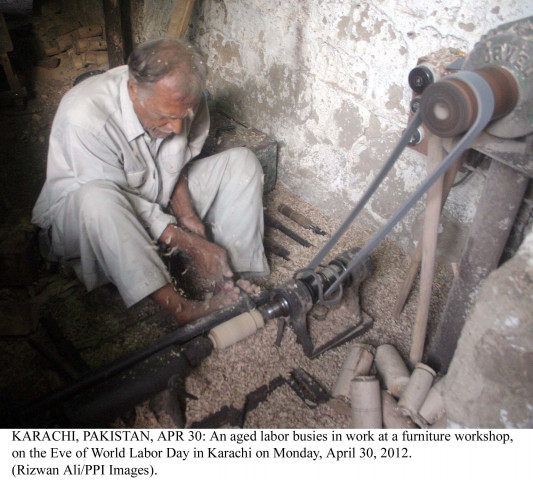Labouring poor: ‘Workers are powerless and invisible’
Seminar on ‘Labouring Poor in South Asia: Challenges of Expanding Informalisation’.

Labourers in Pakistan’s informal sector get no social security or benefits and survive in some of the worst conditions in the world, said speakers at a seminar on ‘Labouring Poor in South Asia: Challenges of Expanding Informalisation’.
“The labouring class is totally powerless and invisible,” said German sociologist Prof Jan Breman, the keynote speaker at the seminar. “These people work and toil very hard but in spite of that they always remain poor because they are not acknowledged by the state and the society.”
Breman, who has worked as researcher in India for half a century, said that like in the rest of South Asia, labourers in the informal sector in Pakistan were frequently not given their legal rights as workers.
Pakistan Institute for Labour Research (PILER) Executive Director Karamat Ali said that 90 per cent of labour was in the informal sector. Even in many private companies and government organisations, informal workers were not given equal status.
Ali said that the industrial relations law was discriminatory as it deprived workers of the right to form unions. This law had also resulted in a suspension of factory inspections, which raised the risk of industrial accidents. He said that many of the women in the labour force were employed as home-based workers and there was no legal protection for them.
Working Women’s Organisation Director Rubeena Jamil said that many companies had operated in the informal sector in order to minimise wages and maximise profit. She said it was immoral to cut wages and devalue workers to create space for informal sector expansion.
The seminar was organised by SAP and PILER.
Published in The Express Tribune, May 21st, 2012.


















COMMENTS
Comments are moderated and generally will be posted if they are on-topic and not abusive.
For more information, please see our Comments FAQ